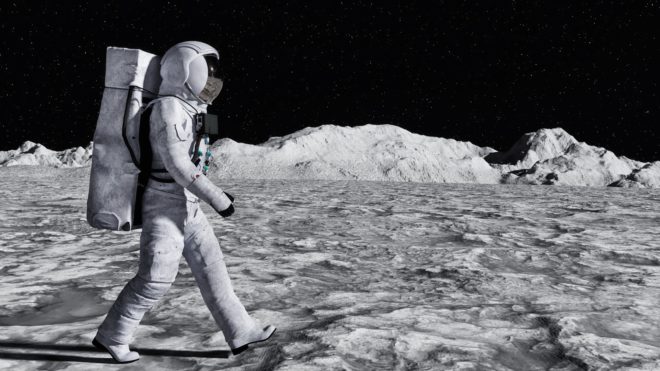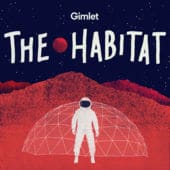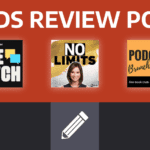Roundtable: What’d you think of Gimlet’s The Habitat?


Together Ma’ayan Plaut, Brendan Hutchins, Wil Williams, and Kevin Goldberg voiced their review and thoughts of The Habitat.
1. What’s your tweet-length review of The Habitat? Your final grade?
MA’AYAN: I got to a point about halfway through listening to The Habitat where I needed to make the decision of listen to everything left because I like it so much and wanting to save it because I didn’t want it to end. It was a lovely look into human drama, in a compelling way that TV reality shows don’t usually appeal to me, but somehow I couldn’t stop listening to. I give it an A-.
BRENDAN: I don’t like reality shows. I didn’t binge this because of that reason, but I did get through it within 3 days. The Habitat also has the patented Gimlet Lens™. I felt the ending was exactly what it should be: one crew comes out and the next goes in. C+
WIL: I wanted to love this because I love Lynn Levy and Megan Tan. What I got was a reality show but more listless and less eventful. C
KEVIN: An interesting docu-series exploring a relatively interesting subject … something you likely won’t remember a year from now. B+
2. What was your favorite part of The Habitat?
MA’AYAN: Hearing both The Habitat residents and past astronauts talk about how to think about life on Earth while in a different zone was both heartbreaking and poignant, and made me think a lot about where I place my time and energy in thinking about the world around me and how I exist in it. I loved the use of archival tape to bring perspective to this isolated glimpse into NASA research.
BRENDAN: hhmmm… the Space Oddity covers?
WIL: Surprisingly, I think the episode about the compositing toilet breaking. It was funny, in a kind of dumb way, but the production in this episode was really great. It was dynamic without being obnoxious, and I loved that it connected the story to something bigger in the realm of space travel.
KEVIN: Maybe low brow, but the bathroom episode juxtaposed with issues of actual problems in space was the most compelling to me. Overall, it was unique and I think we need more of that in podcasts.
3. What was your least favorite part about the podcast?
MA’AYAN: It was difficult to listen to the crew talk disparagingly about another member of the team, and to project from there (well, I guess back in time) to know how that experience played out for the group over the course of a year.
BRENDAN: the drama. Oh does this person not like that person wooooo! Jazz hands.
WIL: I’m deeply uncomfortable with how a relationship between two people in the experiment was handled. I get that romantic relationships are going to be a part of the discussion, and it’s going to be a curiosity—but to go so far as to pull audio the people clearly didn’t want on the record and use it makes me concerned about the journalistic ethics of the project overall.
KEVIN: I wasn’t a huge fan of the self-editing. Since the podcast producers were reliant on the pseudo astronauts to do their own recording, it wasn’t as genuine and raw as it probably should have been.
4. What would you do to improve The Habitat?
MA’AYAN: One episode discussed some of the numerous surveys taken by the crew, and I thought that was ripe with potential anecdotes. I’m not sure they could even use such things, but it felt like a view into the mind of the crew in a self-reflective way that wouldn’t have been self-edited for Lynn’s tape collection.
BRENDAN: Tell me more about the science and the things learned from the experiment! Ok they came out aaaand? What now? What’d you learn? What different for the next experiment?
WIL: Making a podcast with a high-concept that relies on organic responses from other people is a risk. It would be asking too much—and skewing the narrative too much—to want the show to set out with a thesis. Still, I wish there had been some actual . . . point. I wish it would have connected with space exploration more. I wish more of a statement was made besides, “When people are confined together for a year, some people hook up and some people get mad at each other.” There’s nothing novel or compelling in that being the end result.
KEVIN: I get the production challenges, but if the podcast team could have been embedded inside with the pseudo astronauts, it would have resulted in a better podcast where listeners had real insight into what went on.
5. What did you think of the crew members on the mission?
MA’AYAN: I honestly don’t know how to answer this question. I liked them? We didn’t have much choice in who was in there, but if I had a choice I would have loved someone with interview or journalist training to ask questions of each of the crewmates to each other… but it also makes me wonder if/how involved or affecting to the research it is to have such an inquirer in the group.
BRENDAN: They seemed cool. Adventurous. I’m a bit sad they didn’t become best friends afterwards. I would have been that blindly optimistic guy wanting to have 5 new besties.
WIL: I think they were real human people who were chosen for this experiment based on criteria that would make them a good fit for an experiment—not for a podcast.
KEVIN: I couldn’t tell them apart (shrug emoji). Also, Wil’s answer echoes my thoughts.
6. What unanswered questions do you have for the crew?
MA’AYAN: Given how much time was spent speculating about the various relationships in The Habitat, I would have loved some investigation into what it means to do human interaction research at a place like NASA. Especially HOW this particular group was selected, and how you design for that variability in human subjects in quantitative research.
BRENDAN: What did they learn?
WIL: Do any of the participants actually feel like this would help them be prepared for space travel?
KEVIN: How did they rationalize this with their careers? Their families? Their friends?
7. How would you have done inside The Habitat?
MA’AYAN: I would not have been able to do this, hands down. I would shrivel up without sunlight or a breeze, and I do not like random people enough to even contemplate the thought of being stuck with people I didn’t choose for 365 days.
BRENDAN: Good question. Proooobably fine? I mean, I wouldn’t put myself in that scenario… but if that was my only option, I would have spent a year getting better at guitar. The food prolly wouldn’t bother me. A bunch of people super close wouldn’t bother me. Nowhere to run or move wouldn’t bother me….
But no podcasts for a year…. nope! Can’t do it.
WIL: Oh man, so bad. I’d be the person honking on the didj, the person shouting “TORTILLA!”, and also the person who was overly bossy. Having me there would have made for a more interesting podcast, because probably I would have been actually murdered. The Habitat could have been our next prize-winning true crime podcast.
KEVIN: Nope. I’d get cabin fever and go stir-crazy within the first 72 hours.













Comments
Comments are closed.